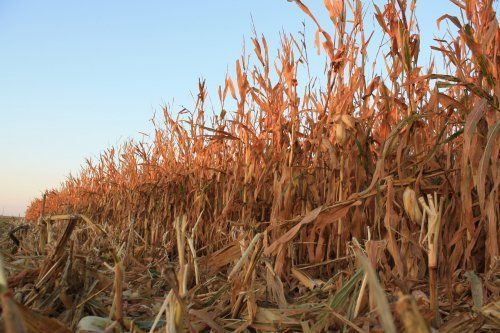The Next Generation Fuels Act Can Save our Communities and Economy

From the outside, IL Corn may sound like an echo chamber when it comes to the Next Generation Fuels Act. From countless interviews, Congressional visits, presentations at the Farm Progress show and other avenues of communication the message is clear. Corn farmers need the Next Generation Fuels Act passed- and they need it to happen soon.
But why? Why are Illinois corn farmers worried about an energy bill bound to be caught up in the plentiful political dynamics present in today’s Congress? Emphasis and urgency have been placed on the legislation because farmers, rural communities, and the public will suffer if the bill, or similar legislation is not passed.
But, how can that be, you may ask? How does this bill have an impact that big? It all comes back to the simple economic principle of supply and demand. In marketing year 2023-2924, United States corn farmers produced 15.3 billion bushels of corn. Of the market, over one third was used for ethanol production. Current ethanol demand and the ethanol industry’s boom in the early 2000s provided critical support for agriculture and rural economies.
However, as state and national governments focus on carbon reduction goals, they often leave out the important and positive impact renewable fuels, such as ethanol, have for the planet. Last week, the IL Corn Growers Association (ICGA), the National Corn Growers Association, and the oil industry sued the U.S. Environmental Protection Agency (EPA) for its overreaching and discriminatory multipollutant emissions standards. The rule unfairly penalizes renewable fuels and refuses to acknowledge the environmental impact of electric vehicles.

The EPA ruling requires 56%of cars must be electric by 2032. The National Highway Traffic Safety Administration released its similar standards June 7. However, the vehicle shift is not the rule’s only jaw dropping attribute as the EPA predicts the electrification will cost $870 billion in vehicle technology. However, NHTSA itself predicts the drastic technology transfer will only reduce global temperatures by .003 C by 2100-- a high pay off for a minuscule reward.
The shift to electric vehicles will not only limit consumers and hurt middle class families but create a domino effect throughout rural communities. ICGA predicts the mandate will decimate corn demand with a loss of 1 billion bushels annually by 2033. Farmers will suffer with grain bins overflowing with corn and no market to sell it to.
The University of Nebraska Lincoln reports a catastrophic, permanent price impact, such as the EPA’s rule, will severely hurt land prices and in return decrease school income based on property taxes. A thriving agricultural economy benefits not just farmers, but towns, rural businesses, youth and state economies. Everyone is to suffer from the EPA’s ruling, not just corn farmers.
To be frank, I have never known a time when farmers were hurting, and America was not.
Let’s stop the nonsense, protect our environment with the technology we have access to right now, and shield our economy from a catastrophic hit. We may sound like an echo-chamber, but with a problem this big, and a solution available, it would be crazy for our organization not to push hard to pass this bill. Our farmers, communities, and fellow Americans need a solution, and they need it now. Let’s pass the Next Generation Fuels Act.
Garrett Hawkins is the vice president of the IL Corn Growers Association.







